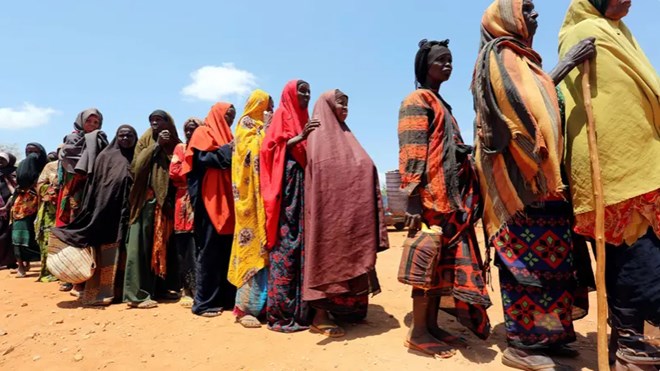The World Health Organization (WHO) issued a warning on Friday that almost 130,000 people in the Greater Horn of Africa are “staring death in the eyes” due to extreme hunger.
According to the WHO, food insecurity is reaching crisis levels for 48 million people in the Greater Horn countries of Djibouti, Ethiopia, Kenya, Somalia, South Sudan, Sudan, and Uganda.
In order to eat, households would have to forego meals and use down their savings and possessions.
Six million of them are experiencing food insecurity at an emergency level, and 129,000 are at the worst level, catastrophe.
Liesbeth Aelbrecht, the WHO’s incident manager for the health crisis in the Greater Horn of Africa, said of the people: “They are starving and looking death in the face.
She informed journalists in Geneva via video link from Nairobi that of of the 129,000, 96,000 were in Somalia and 33,000 were in South Sudan.
The majority of the region is experiencing the worst drought in at least 40 years, while other areas have experienced flooding, which has caused widespread hunger, according to her.
The number of malnourished children is at an all-time high, she said, and illness outbreaks are on the rise.
Acute malnutrition would likely affect 11.9 million children under the age of five this year.
Measles, cholera, malaria, dengue, hepatitis E, and meningitis outbreaks are all present in the area.
The number of illness outbreaks reported in the Greater Horn of Africa has risen to its highest level in this century, and the health systems in the majority of the seven nations are struggling to keep up, according to Aelbrecht.
According to her, severe weather occurrences may be directly responsible for the prevalence of certain diseases.
With increasingly frequent and severe crises, the area is among the most vulnerable to climate change.
Millions of animals have perished, crops have been destroyed, and millions of people have been forced to flee their homes in search of food and water due to five consecutive failed rainy seasons.
We need to be ready for more frequent emergencies now that climate change is a fact, according to Aelbrecht.
She stated that as of right now, resources are required to prevent widespread disease and fatalities, with the WHO requesting $178 million in 2023.

